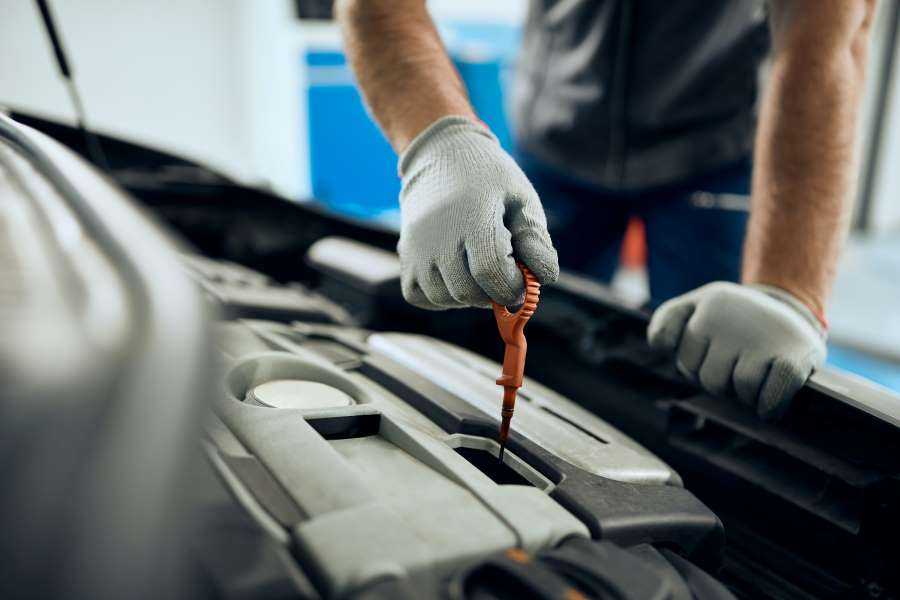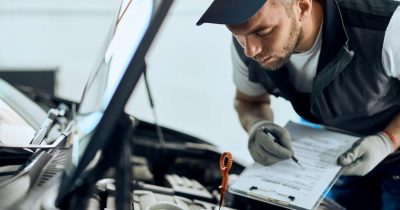Successful fleet management requires not only strategic vehicle selection, but also careful maintenance, repair and servicing of the fleet. Choosing the right workshop is particularly important here. This is because there are often significant differences in terms of both price and quality. With the help of our workshop checklist, we show you which key factors are important when making your choice.
Contents
1. compare workshops
Choosing the right workshop can take a lot of time. But comparing the workshops pays off. There are often big differences, especially when it comes to prices. This does not necessarily mean opting for the cheapest garage, but rather finding the best value for money. If repairs are carried out professionally and efficiently, possible vehicle downtimes can be minimized and long-term savings achieved.
2. have a cost estimate drawn up
Effective preparation is the key to avoiding unnecessary costs. Fleet managers should therefore not place repair orders without a written cost estimate, as the workshops are bound by these. Unplanned cost increases are therefore only acceptable with prior approval.
In addition, it is always a good idea to look at the car manufacturer’s catalog with the prices for the required spare parts in advance. This can prevent the workshop in question from installing overpriced spare parts.
The manufacturer’s documents can also be helpful when monitoring maintenance work. These specify exactly which work is to be carried out at a certain mileage and how much working time is scheduled for this.
3. workshop commitment depending on the fleet
Car insurance with a garage commitment can have financial benefits. This is because special conditions and longer warranties on the repairs carried out can reduce costs in the long term. According to the comparison portal Check24, an average premium discount of 8 percent can be achieved with a tariff with a garage commitment.
However, it should be noted that these contracts usually stipulate that only certain workshops may be visited in the event of damage. This point in particular is disadvantageous for leased vehicles. Leasing or loan agreements often stipulate that the leased vehicle may only be repaired in the manufacturer’s workshops.

4. savings through independent workshops
By using independent workshops, savings can be achieved for the vehicle fleet. Despite their generally lower prices, they can keep up with most manufacturer workshops. Many cover a wide range of brands and can also impress with qualified repairs and service quality. This can contribute to the efficient use of resources and long-term cost savings in fleet operations.
5. workshop framework agreement for larger vehicle fleets
A workshop framework agreement is an agreement concluded between a company with a fleet of vehicles and a workshop. This contract sets out the terms and conditions for the maintenance, repair of damage and servicing of the entire fleet. Instead of concluding a separate contract for repairs or maintenance for each individual vehicle in the fleet, the workshop framework agreement offers a long-term and comprehensive agreement.
This is particularly important for fleets with different car brands, as low-cost framework agreements are often only available from a minimum number of vehicles. Some garage chains also offer flat-rate maintenance contracts that cover the entire fleet for a fixed monthly fee.
5. external service providers as support
Given that the scope of maintenance can vary between different manufacturers and models, as well as depending on the engine of the vehicle in question, it is extremely difficult for fleet managers with large fleets to keep track of everything. External service providers can offer valuable support here. They not only take over the cost control for the fleet, but also have the necessary technical expertise to check workshop invoices in detail.

Digitize your Vehicle Fleet
Organize your vehicles with Fleethouse: manage data centrally, keep an eye on all appointments and monitor costs.
Consider a follow-up guarantee
To minimize the cost of workshop visits, warranties can be essential, especially at the beginning. Dealers and manufacturers have the freedom to determine which areas are covered by the warranty and which are not. If the manufacturer’s warranty has expired, a follow-up warranty may be useful. It is taken out at the time of purchase and comes into force after the manufacturer’s warranty has expired. In contrast to the manufacturer’s warranty, where the manufacturer is the guarantor, the seller is the guarantor for the extended warranty. Depending on the scope, it is guaranteed for the duration of the extended warranty that the vehicle is protected in the event of a warranty claim under normal and intended use. As a rule, however, wearing parts are excluded.
The most important things about the workshop checklist
It pays to compare garages, especially when it comes to prices, as there can be big differences between garages.
External service providers can be a great advantage when organizing workshop appointments.
Workshop framework agreements can be particularly useful for larger vehicle fleets.
Further Fleet Knowledge
If you liked this article and would like to know more about this topic, we recommend these articles.

Claims handling: A guide for fleet managers




